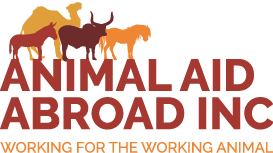Camel treatment camp at the Pushkar Fair, India
The animal kingdom plays an important role in the life of Indian people. Animals are involved with their economy, their livelihood, their rituals and worships as well. There are numerous animal fairs held every year and each fair has its own significance. Pushkar fair is one of the most popular and colourful fairs of the ‘Thar’ desert of Rajasthan. It's held in Pushkar every year in the month of October/November. Pushkar is a holy town for the Hindus located about 150 kms from Jaipur in Rajasthan. Pushkar is famous for it's temples and ghats. It is one of the oldest cities of India. Traders and villagers from all over Rajasthan and neighbouring states gather with thousands of camels for trading. Nearly 12,000 camels, horses and bullocks were assembled this year from all over Northern India. Many animals and their owners walk for days to be at the fair. Few of them use different modes of transportation like trucks to bring their animals to the fair.
AAA partner group Help in Suffering- Jaipur, Rajasthan-India (HIS) organized a week long free Camel Treatment Camp at the fair from 15-22 November 2018.
The team was comprised of vets Dr Abhinav Swami and Dr Jitendar Jhingonia, with compounders Rajendra, Rajesh, Bhagwan Das, Lalchand, Vimal and Prabhu.
A total number of 548 camels were treated at the fair for various clinical problems. 229 camels were de-wormed to reduce the gastric worm load. Camel owners were advised to follow the de-worming schedule at least once in three months to keep their camels healthy.
This year there was an outbreak of camel pox. A large number of camels were suffering seriously with the fever, loss of appetite and the pox lesions on the head, face, mucous membrane of respiratory tract, ears, limbs, genitalia etc.
The majority of the other cases presented to the camp had gastric disturbances which mainly included simple indigestion, along with few cases of diarrhoea, colic, and impaction. Sudden change in feed and water, stress due to long journey and diurnal variations of temperature during the fair are the main factors responsible for gastric problems.
There were also a number of camels suffering from injuries such as nose peg wounds, saddle sore wounds, leg injuries, eye injuries, punctured foot pad wounds etc.
Treating nose peg wound injuries was a major challenge to the team as each and every owner was explained the significance and importance of plastic nose pegs over the wooden and metal ones which cause the injuries.
Lameness was frequently observed as people brought their camels from long distances without sufficient rest. Camels have a high risk of lameness when owners walk for days together or during loading and unloading in the trucks to bring their camels to the fair.
This year 255 camels were treated for skin infections like mange and other external parasites which was much higher than the previous year’s camps.
There was also an outbreak of upper respiratory tract infection. Hundreds of camels suffered from the same problem with symptoms of thick nasal discharge, dyspnoea, loss of appetite etc.
Camels are very much prone to road accidents on highways because of their invisibility during the night. These accidents usually result in fatal injuries to camels and their owners. To try and reduce the number of these road accidents, 320 pairs of reflectors were fixed to camel carts at the fair by the HIS team.
Approximately 1,050 leaflets were distributed to camel owners to provide education about better management practices and care for their camels. These leaflets are printed with easy to read text, and with self explanatory pictures. These leaflets are very useful to explain to owners the proper management of nose peg and saddle sore wounds, optimum weight limit, significance of reflectors and routine check-ups of the camels.
Help In Suffering is thankful to all donors and supporters for their kind support in the organisation of the Pushkar Camp for welfare of camels.
